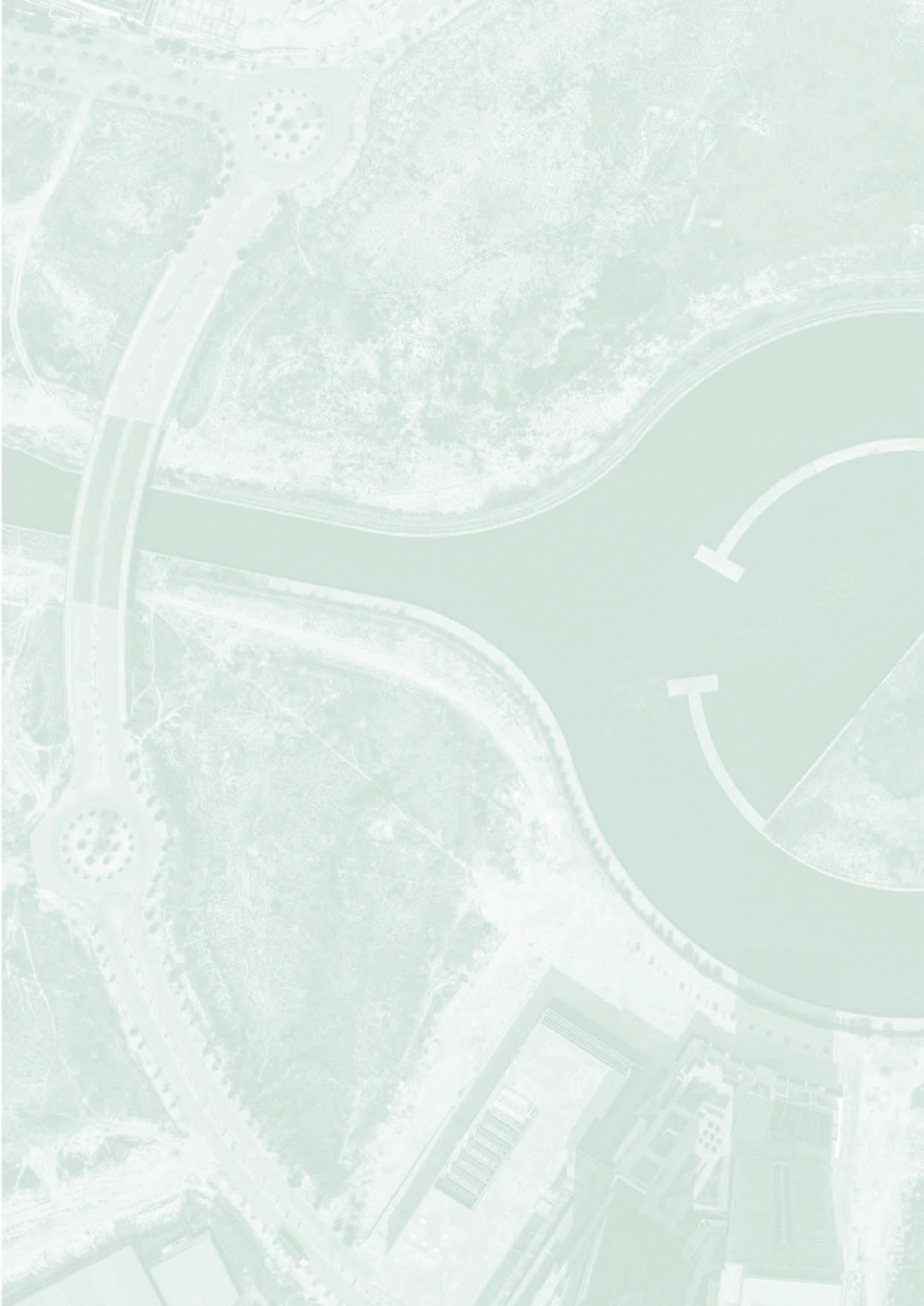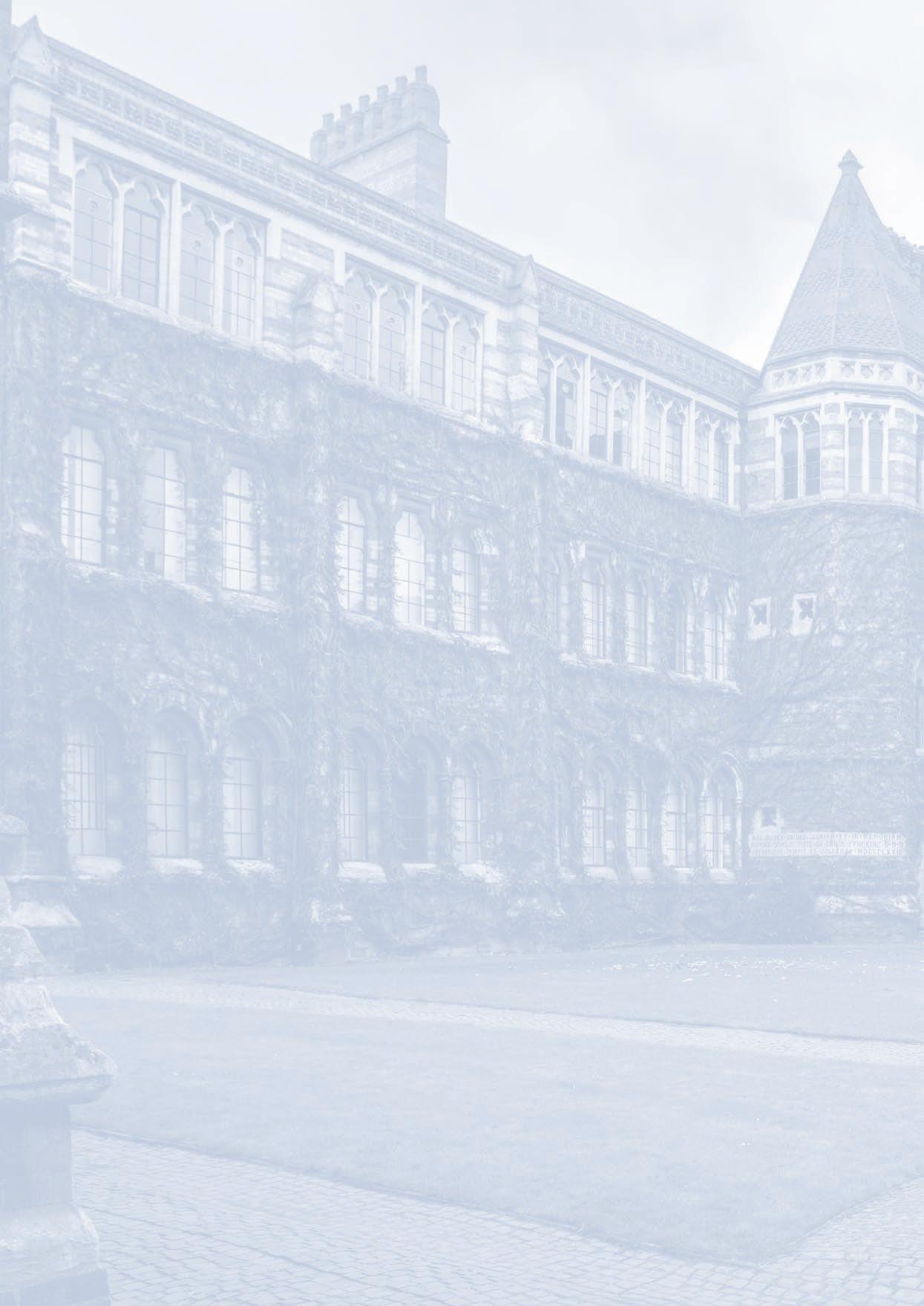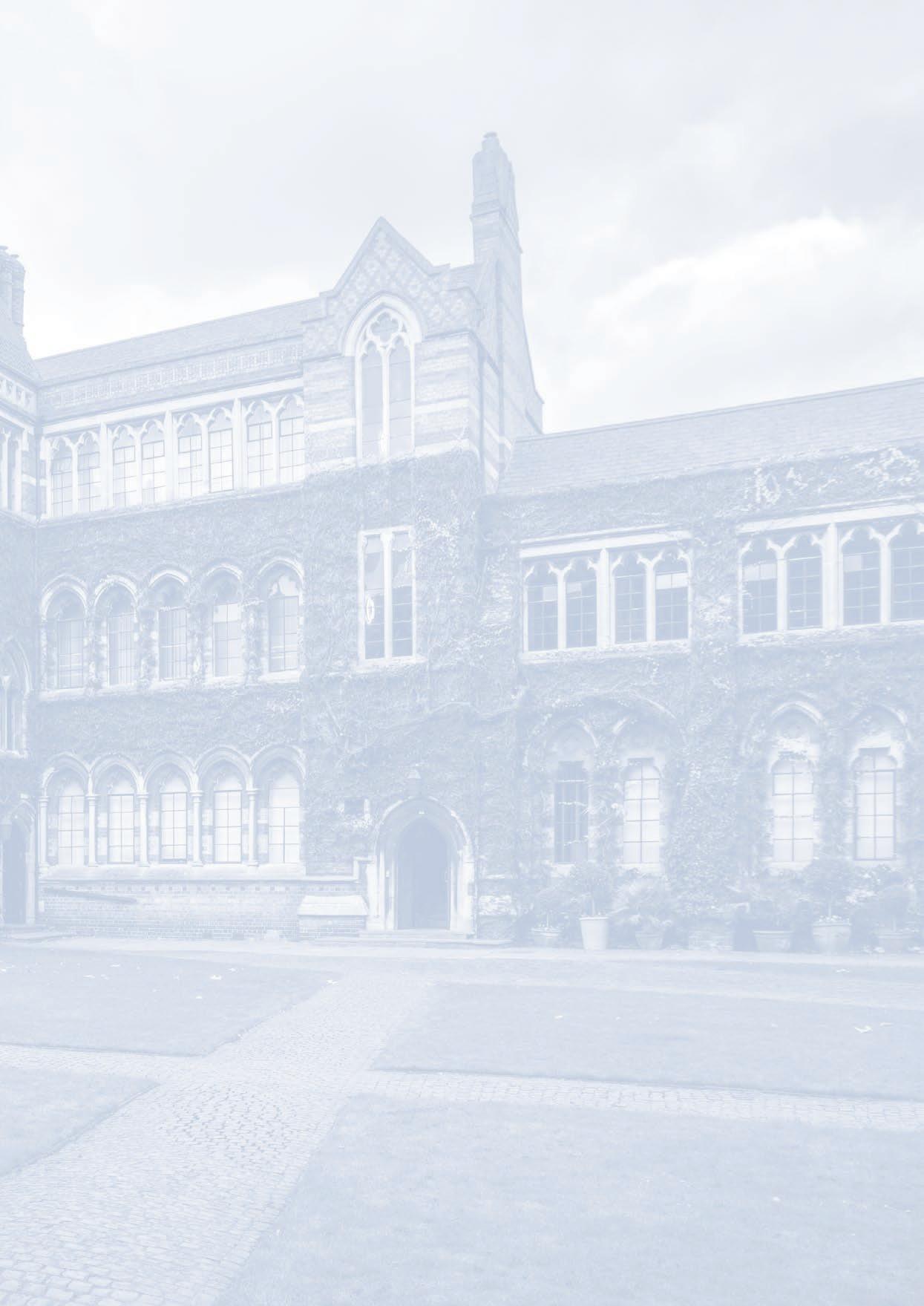

Welcome to Rugby School Nigeria Sixth Form
The Upper School (Sixth Form) at Rugby School Nigeria will allow students to immerse themselves in advanced study. Students will enjoy the satisfaction of taking control over their chosen academic path by studying subjects they have personally chosen and, in the process, they will begin to mould their futures.
Upper School courses are academically demanding. Success requires a willingness to be scholarly and creative, curious and critical, determined and ambitious, to develop ideas independently and collaboratively. The range of dispositions that are developed in Rugby students are reflected in the ‘Rugby Learner Profile’; qualities such as versatility, intellectual curiosity, resilience and global mindedness are essential to success in the 21st Century.
Departments strive to push students beyond their perceived limits. Those with the interest and ability necessary to apply to the world’s top universities will be supported and encouraged.
A wealth of enrichment opportunities will supplement the formal curriculum in all subjects and these are available to all Upper School students.
Academic study at Rugby happens firmly within the context of the wider school experience.
As students develop through their lessons, enrichment, careers programme and Rugby 360 (community action and service programme), they start to understand the place of their academic learning in the real world.
In the following pages, we have provided an overview of the A levels, followed by some advice on selecting subjects within each of these routes.
Each of the academic departments has provided more detailed information on specific courses available. We hope you will find this a useful resource for planning your next step.
For enquiries please contact:
Joy Isa, Director of Marketing & Admissions – jisa@rugbyschoolnigeria.com

Please note:
Terminology: in Rugby School Nigeria, Year 12 (or the Lower Sixth) is referred to as the LXX (Lower Twenty), while Year 13 (or the Upper Sixth) is referred to as the XX (the Twenty).
Disclaimer: the curriculum outlined in these pages is largely based on that of Rugby School UK. Once Heads of Department are appointed, decisions may be made together with the Principal and Deputy Head Academic, to choose different examination boards for individual subjects. These decisions will be made carefully on a range of criteria (including educational quality) in consultation with the school’s governors.
RESILIENT
Demonstrates willingness to overcome set-backs.
Recognises that in failure lies a limitless capacity for growth and learning.
Approaches uncertainty with grit, courage and determination.
REFLECTIVE
Seeks to understand personal strengths and weaknesses. Takes responsibility for their own actions and their impact. Sets goals and carefully considers how best to achieve them.
VERSATILE
Adapts existing or creates new approaches to problem-solving. Transfers knowledge and skills from one context to another. Takes appropriate risks in the quest for intellectual and personal growth.
RUGBY LEARNER PROFILE
RUGBY LEARNER PROFILE
ENQUIRING
Questions actively and is curious.
Reasons thoughtfully in the face of ethical decisions and acts with integrity.
Analyses ideas using critical and creative thinking.
COMMUNICATIVE & COLLABORATIVE
Expresses ideas clearly and confidently.
Listens to the perspectives of others and engages in meaningful discussion.
Works effectively with others to promote growth of the group and the self.
GLOBALLY-MINDED
Actively seeks to understand the world in which we live.
Celebrates how each person's diverse and unique contribution enriches our community.
Takes action on local and global issues.

A Levels Overview
A levels are stand-alone, subject-based qualifications and are the most commonly studied post-16 qualification in the UK and British schools internationally.
At Rugby School, students who opt for A level must study three subjects, unless they select Further Mathematics in addition to Mathematics. In that circumstance, students will be able to study four subjects (i.e. two Mathematics courses and two other subjects).
There is also the option to take an Extended Project Qualification (EPQ) on a topic of their choice. The EPQ supports the development of independent research skills and allows students to pursue their curiosity and personal academic interests.
A levels are graded on an A*-E scale. At Rugby School Nigeria, A level students will participate in 42 periods per fortnight of taught lessons (49 for those students who take Further Mathematics).
Assessment
A level courses are assessed through linear examinations. Some have coursework components but this varies from one subject to another; most do not. The form that coursework and examinations take is dependent on the subject but reflects the skills important for that area of study. Public examinations take place during May and June and results are published in mid-August.
What are the advantages of A level?
A levels allows a free choice of subject so that three humanities subjects, three sciences or three creative subjects can be taken which is not possible within the IB Diploma. A levels also allow Mathematics to be taken at a higher level (Further Mathematics) which can provide an advantage if applying for Mathematics degrees or quantitative science/engineering degrees at Oxford or Cambridge requiring highly mathematical entrance tests.

What do universities think of A Level qualifications?
A levels are the most common form of qualification for candidates applying to UK universities. Universities in the UK understand the qualification very well and will typically make offers on the basis of three A level grades.
When it comes to US, Canadian and European universities, A levels are also well recognised and it is possible to access global universities via A levels.

Choosing Subjects
When choosing subjects for Sixth Form study we recommend considering the following factors:
• Interest in the subject
• The subject’s suitability for aspirations beyond the Sixth Form
• Aptitude for the subject.
The following pages provide detailed information about the course run by each academic department and we encourage students to read those they are interested in carefully.
We recommend at least a Grade 6 at I/ GCSE in any subject taken at A level; students will not normally be allowed to pursue a subject in which they have attained less than a Grade 5. There are additional I/GCSE qualification requirements for some subjects at A level, detailed in the subject pages that follow.
Syllabus and Assessment details are indicative only at the time of publication and are subject to modification as a result of changes made by examination boards.
N.B.
• While we aim to offer as much choice of subjects as possible, we cannot guarantee to provide a subject if the number of students who choose it is very low.
• If students change their mind after options have been finalised, we will endeavour to accommodate their request but we cannot guarantee that we will be able to make changes.
• No subject changes are allowed after the first half-term in the Advent term of the LXX (Year 12) year, however, it would be rare for a student to make subject changes after the first fortnight of the Advent term.
• N.B. Syllabus and assessment details are correct at the time of publication but are subject to modification as a result of changes made by exam boards.
• Some of the content in courses such as English Literature, History and Economics refers to UK-focused material; on appointment, Heads of Department will be encouraged to use Nigerian subject content where possible.
Choice of Subjects
The choice of subjects:
In the first year of its operation, Rugby School Nigeria will offer a carefully chosen suite of A Level subjects for students. These will include:
• English Literature
• Business
• Economics
• History
• Geography
• Mathematics
• Computer Science
• Single Mathematics
• Further Mathematics
• French
• Biology
• Chemistry
• Physics
• Art
• Sports Science (Academic PE)

A fuller range of subjects will be delivered in later years, once the campus has been completed and pupil numbers have grown. These will potentially include:
• Design & Technology
• Drama/Theatre Studies
• Music
• Politics & International Relations
• Philosophy & Religious Studies
• Psychology
• Spanish

CONTENTS



English Literature
Aims
The cultivation of a discriminating and well-informed understanding of literary texts from a variety of periods, taking account of their technical, formal and thematic qualities, together with some understanding of literary history and historical context.
Development of the ability to articulate, orally and in writing, students’ personal response to literature measured against precise analytical understanding of the texts under examination.
Nature Of The Course
This is a wide-ranging course that explores different periods and genres. Four texts are studied in the first year: two plays, chosen from a list that includes American greats such as Tennessee Williams and Edward Albee; a novel, such as Colson Whitehead’s Underground Railroad; and poetry is studied (usually a single poet’s works, such as William Blake). In the summer we run a Literature project that allows students to develop an interest in texts beyond the syllabus and fosters independent learning.
In the second year, a further three texts are studied, such as Shakespeare’s Hamlet and Austen’s Pride and Prejudice. There is further study of a contemporary poet and work on Practical Criticism, in which students are given a selection of unseen texts and asked to write about them, using skills of critical analysis developed during the course.
Assessment Details
CIE English Literature (9695)
https://www.cambridgeinternational.org/ Images/636097-2024-2026-syllabus.pdf
Assessment is by four examination papers of 2 hours each:
1. Poetry and Poetry
2. Prose and Unseen
3. Shakespeare and Drama
4. Pre and Post 1900 Poetry and Prose
Beyond Sixth Form
English Literature remains a great course to study at university: it is a highly-regarded degree that can launch undergraduates into all manner of careers. All universities offer English Literature courses, and the subject combines well with History, Modern Languages, Drama or as part of a Liberal Arts degree. ‘Newer’ subjects like American Studies and Film Studies also are closely related. In recent years students have also won places at university to study Creative Writing.

HUMANITIES

Business
Aims
The aims of A level Business are to enable students to understand better the dynamic nature of the modern business world including how to take advantage of new opportunities, how to navigate the myriad challenges faced by entrepreneurs and how business fits into the global economic context.
Students will develop the ability to generate enterprising and creative solutions to business problems as well as enhance their wider academic skills. These include independent research, discussion and presentation skills together with the numeracy and literacy skills necessary to accurately interpret data and persuasively convey business strategies.
We also encourage a proactive attitude towards enrichment and aim to give students practice in applying the skills and knowledge required to succeed when starting or managing a business.
Nature Of The Course
A level Business is both essay-based and mathematically rigorous. It focuses significantly on evaluating high-level business decisions whilst including complex accounting. This is because the main aim of Business is to provide students with the opportunity to develop a clear understanding of how modern businesses function. In addition, we believe it is fundamental to equip students with the skills necessary to successfully work in business in the future either as a part of existing businesses or as entrepreneurs.
The course is taught using a case-study approach and frequently draws upon real-world examples in the current business news. There are four broad themes: Marketing and People; Managing Business Activities; Business Decisions; and Strategy and Global Business.
Assessment Details
The course follows the new linear Edexcel specification
https://qualifications.pearson.com/ en/qualifications/edexcel-a-levels/ business-2015.html
• Paper 1: Marketing, people and global businesses is a 2-hour paper covering Theme 1 and Theme 4
• Paper 2: Business activities, decisions and strategy is a 2-hour paper covering Theme 2 and Theme 3
• Paper 3: Investigating business in a competitive environment is a 2-hour paper covering all four themes, based on a pre-released context
Paper 1 and 2 each constitute 35% of the overall A level. Paper 3 constitutes 30%.
Beyond Sixth Form
Many of our students go on to study business-related courses at Russell Group universities including Finance and Accounting, Business, Business Management and Marketing.

Economics
Aims
The aims of A level Economics are to enable curious students to appreciate fully the economic world that surrounds them thereby allowing them to analyse and thoroughly evaluate a wide variety of economic ideas, arguments and policies which directly influence their lives.
Successful students will discover the strong relationship between Economics and other academic subjects with either complementary knowledge (History, Politics, Geography) or complementary skills (Physics, Mathematics, Philosophy). They will also develop wider academic abilities including independent research, discussion and presentation skills. Students who most enjoy the course will equip themselves with a working knowledge of current economic affairs.
Students can expect to incorporate a wide range of mathematical techniques and graphical interpretations of theories into their powerfully persuasive evaluative essays.
Nature Of The Course
The subject is divided into Microeconomics and Macroeconomics although a substantial amount is synoptic in nature.
Microeconomics explains how individual markets function and provides an insight into the behaviour of businesses. At the start we do this by using simple models, such as supply and demand, but the course covers far more challenging concepts such as collusive oligopolies and behavioural economics in an attempt to answer questions such as:
• Should we pay to see a doctor?
• Why are London house prices rising so rapidly?
• Do people make rational decisions?
• Should there be a minimum price for alcohol?
Macroeconomics analyses the performance of whole economies and their interactions with each other. The focus is on key indicators such as GDP, unemployment and inflation. Typical questions might include:
• What are the implications of record low rates of UK unemployment?
• Is a low rate of inflation in the UK good or bad?
• Should the UK government increase spending to assist in economic recovery or is austerity working?
• Would more regulation of banks help prevent future financial crises?

Assessment Details
The course follows the new linear AQA specification and all papers constitute one third of the overall A level
https://www.aqa.org.uk/subjects/ economics/a-level/economics-7136
• Paper 1: The operation of markets and market failure is a 2 hour Microeconomics paper
• Paper 2: National and international economy is a 2 hour Macroeconomics paper
• Paper 3: Economic principles and issues is a 2 hour synoptic paper
Beyond Sixth Form
Typically, about half of our students go on to study Economics-related courses at university. Studying Economics particularly facilitates future City careers including those in investment banking, finance, insurance and business management as well as research-driven disciplines.

Geography
Aims
Geography is increasingly becoming the essential subject to study at A level, university and beyond. Geography has the unique position of bridging the Arts and Sciences, allowing students to combine the discursive and analytical skills found in essay-based subjects with the data manipulation and statistical competence of scientists. Its solutionbased focus, opportunities for critical thinking and big picture analysis make Geography the perfect subject to fully understand the integration between the physical and human world and how to ensure the sustainability of this relationship.
Nature Of The Course
The course content is mixed in terms of Human and Physical Geography, alongside an Independent Investigation supported by a field trip to a chosen location offsite in the LXX.
The physical geography components of the course consist of: Coastal environments and Earth’s life support system (carbon and water). The human geography components of the course include Trade in a contemporary world and Changing spaces; Making places. The course also includes one geographical skills lesson per week in the LXX. These lessons prepare students for the requirements of both the exam and their non-examined assessment (NEA). The NEA is an independent investigation into either coastal or urban environments. Each student is allocated a Geography
NEA supervisor, who monitors progress and provides the appropriate guidance to ensure all students complete this on time. Students also study the contemporary geographical debates of Hazardous Earth and the Future of Food in the XX.
Assessment Details
Examination board: OCR (Code H481)
https://www.ocr.org.uk/Images/223012specification-accredited-a-level-gcegeography-h481.pdf
• Paper 1 (1h 30mins): Physical Systems (22%)
• Paper 2 (1h 30mins): Human Interactions (22%)
• Paper 3 (2h 30mins): Geographical Debates (36%)
• Independent Investigation (coursework): 3000-4000 words (20%)
Beyond Sixth Form
The wide range of knowledge and skills obtained through A level Geography means that it is a highly desirable subject at university level. Many students choose to continue their Geographical studies at university each year. However, even if not going on to read Geography the nature of the subject allows those who study it to develop a multitude of transferable skills, highly valued across professional industries, from Law to Engineering.

History
Aims
History in the Upper School is a challenging and stimulating subject which has always been popular at Rugby. We believe in giving students a varied historical diet and offering them a wide range of topics to study. There is plenty of flexibility to allow for student learning above and beyond the syllabus. Students are expected to carry out their own extensive research based on specialist textbooks, library research and intelligent use of podcast and internet sources.
In lessons, emphasis is placed on seminarstyle discussion and presentation. A collaborative approach to learning is central. All sets are taught by experts in their particular field. The periods on offer may vary according to staff availability and interests and the following is based on the current sets studying in the Upper School.
Nature Of The Course
• Persecution and Power, 1095-1700: Wars of the Roses 1445-1509 (Unit 1); The Crusades and the Crusader States 1095-1192 (Unit 2); Popular Culture and the Witchcraze 1500-1700 (Unit 3).
• Resistance and Rule, 1783-1992: Pitt to Peel: Britain 1783-1853 (Unit 1); Democracy and Dictatorship in Germany, 1919-1963 (Unit 2); Civil Rights in the USA 1865-1992 (Unit 3).
Assessment Details
Examination board: OCR History
https://www.ocr.org.uk/qualifications/ as-a-level-gce/history-a-h105-h505from-2015/
• Unit 1: 90 minutes (25%)
• Unit 2: 60 minutes (15%)
• Unit 3: 2 hours 30 minutes (40%)
• Unit 4: coursework (20%)
Beyond Sixth Form
A level History remains a gold-standard qualification, trusted by leading universities and established professions. With its emphasis on analysis, argument and debate, it is a subject that opens doors to a very wide range of degree courses. Beyond the realms of university, historians have always been in high demand in law, journalism, the civil service, consultancy, management, recruitment, publishing, cultural heritage and politics. History can partner any subject as part of a rewarding A level diet.

MATHEMATICS & COMPUTER SCIENCE

Mathematics (Further)*
Aims
The Further Mathematics A level course contains stimulating and interesting material for mathematically confident students, whilst providing support for university courses that require a significant level of mathematical content. The course provides a platform from which able mathematicians can flourish and distinguish themselves, with extension elements like Cambridge STEP material tied in to regular lessons.
Nature Of The Course
Students wishing to study Further Mathematics in the Sixth Form will work towards qualifications in A level Single Mathematics and A level Further Mathematics. The Further Mathematics course is split into four papers of 90 minutes in length and all worth 25% of the final grade. Pure topics include Differential Equations, Vectors, Hyperbolic Functions, Advanced Trigonometry, Matrices and Advanced Calculus.
Assessment Details
The qualification is assessed through four 90-minute papers taken at the end of the XX. The examination board is Edxecel.
• Paper 1: Core Pure Mathematics 1 (*Paper code: 9FM0/01)
• Paper 2: Core Pure Mathematics 2 (*Paper code: 9FM0/02)
• Paper 3: Further Mathematics Option 1
• Paper 4: Further Mathematics Option 2
Examination board: Edexcel
https://qualifications.pearson.com/ content/dam/pdf/A%20Level/ Mathematics/2017/specification-andsample-assesment/a-level-l3-furthermathematics-specification.pdf
Beyond Sixth Form
Further Mathematics is a wellrespected qualification that allows able mathematicians to show their quality. It is essential for entry to highly mathematical courses at top UK universities, and strongly recommended in some other cases.
*GCSE Grade 9 in Mathematics is normally required to study A level Mathematics (Further)

Mathematics (Single)*
Aims
A level Mathematics progresses from the material studied at the top end of the IGCSE course. The qualification develops logical thought and an ability to reason through difficult problems. Sixth Form mathematicians quickly build up processes of analysis which are important across a variety of curriculum areas. Whilst dedicating time to exam technique and preparation, the Mathematics department is keen to develop a love of the subject and an appreciation for the links between topic areas. This allows our Sixth Form students to benefit from a broad mathematical experience which improves understanding as well as basic techniques.
Nature Of The Course
The course is linear. This means that there is no opportunity for students to leave with an AS qualification after the LXX, and assessment takes the form of three 2-hour papers (Pure 1, Pure 2 and Applied) at the end of the XX.
The course is split between Pure Mathematics and Applied Mathematics in the ratio 2:1.
Assessment Details
Examination board: Edexcel
https://qualifications.pearson.com/ en/qualifications/edexcel-a-levels/ mathematics-2017.html
• Paper 1: Pure Mathematics 1(*Paper code: 9MA0/01)
• Paper 2: Pure Mathematics 2 (*Paper code: 9MA0/02)
• Paper 3: Statistics and Mechanics (*Paper code: 9MA0/03)
Beyond Sixth Form
Mathematics A level is a strong academic qualification in its own right, but also supports scientific subjects and subjects like Economics. Universities are making specific offers on Mathematics grades for a number of mathematics-related degrees, highlighting the importance of the subject in further education.
*GCSE Grade 8 in Mathematics is normally required to study A level Mathematics (single)

Computer Science
Aims
The aims of A level Business are to enable students to understand better the dynamic nature of the modern business world including how to take advantage of new opportunities, how to navigate the myriad challenges faced by entrepreneurs and how business fits into the global economic context.
Students will develop the ability to generate enterprising and creative solutions to business problems as well as enhance their wider academic skills. These include independent research, discussion and presentation skills together with the numeracy and literacy skills necessary to accurately interpret data and persuasively convey business strategies.
We also encourage a proactive attitude towards enrichment and aim to give students practice in applying the skills and knowledge required to succeed when starting or managing a business.
Nature Of The Course
Mathematical skills are embedded throughout the content of the course alongside a strong emphasis on software development, the study of fundamental programming techniques and the building of knowledge and understanding of core Computer Science concepts.
A programming project gives learners an opportunity to create a complete system and associated documentation which
is focused on software development and is related to a project title of their choice. The programming language to be used is investigated and considered by each student, whilst Python is used predominantly for teaching.
Assessment Details
Examination board: OCR A level Computer Science
https://www.ocr.org.uk/Images/170844specification-accredited-a-level-gcecomputer-science-h446.pdf
• Paper 1 Computer Systems –2hrs30mins (written paper) 40%
• Paper 2 Algorithms and programming – 2hrs30mins (written paper) 40%
• Programming project – (non-exam assessment) 20%
Beyond Sixth Form
Students who have completed the Computer Science A level qualification will be excellently positioned to follow a Computer Science based or related higher education programme of study, or to apply for workplace opportunities. The nature of Computer Science means that graduates will be very well suited to many roles in a digital environment. Some popular graduate vocations are software development, e-commerce, engineering, medicine and the finance industry.

MODERN FOREIGN LANGUAGES
Native speakers
We can arrange for students to be entered for an A level in their native tongue. However, we do offer a note of caution. A level courses are not just language assessments. There is always a cultural/ literary/ film aspect. They are content-rich and require proper preparation in order to achieve the top grade. Whilst we can advise on syllabus and examination technique, we cannot offer teaching in languages other than those listed. It is the responsibility of the student to ensure they are of a suitable standard.

French
Aims
The French department aims to stimulate lasting curiosity in both the French language and the culture of the Frenchspeaking world. By the end of the course, our intention is that all students will have developed the language skills needed for effective, sophisticated communication in French, whether in conversation or in writing. Students will also develop their reading, listening and translation skills in order to give them access to a wide range of materials, such as novels in French or French newspapers. The use of authentic sources and of interaction in French is an integral component of our teaching. Grammatical competence and the ability to manipulate language accurately and appropriately are a pre-requisite for study in higher education and we place strong emphasis on these skills in the Upper School.
Upper School students have the chance to go on a residential trip to Bordeaux. This is a great opportunity for students to stay with a French family for a week, discovering their way of life and further develop their French.
Nature Of The Course
The course includes the study of literary texts and films, as well as translation, grammar and an individual research project. Core topic areas include current trends and issues of French-speaking societies and political and artistic culture in the French-speaking world. All topic areas are studied with reference to France and French-speaking countries. Students studying French with us will regularly go beyond these topic areas and will
have the opportunity to research areas in which they are interested.
Assessment Details
Examination board: AQA
https://filestore.aqa.org.uk/resources/ french/specifications/AQA-7652-SP-2016.
We follow the AQA A level French course. The three papers are weighted differently and test in the following way:
• Paper 1: Listening, reading and writing (including translations into English and French, 50%)
• Paper 2: Writing (analytical essay on film and literature plus grammar tasks, 20%)
• Paper 3: Speaking (discussion based on stimulus card and presentation and discussion of individual research project, 30%)
Beyond Sixth Form
Learning a foreign language has become a key component for those who wish to compete at a high level in the employment market. Being able to converse in a number of languages not only allows you to rise higher within multinational organisations but also gives you a substantial advantage when negotiating deals with international businesses or even investors. The skills honed when studying French in the Upper School will also help enormously should a student wish to take up a new language at university or later in life.

SCIENCE
Biology
Aims
The A level Biology course aims to lay theoretical foundations for students to pursue the subject beyond school, including a practical course designed to develop key laboratory skills from dissection of specimens to molecular techniques. The skills are taught with a focus on data analysis and experimental design.
In addition, the course develops key transferrable skills that are hugely sought after by employers in many professions including: problem solving, critical thinking, abstract thinking, and communication skills.
The course also develops an appreciation of current scientific issues facing society such as the impact the human population is having on the environment and the emergence of new genetic technologies.
Nature Of The Course
The A level course is taught over the two years of the Sixth Form by two teachers. There are 8 topics studied.
• Biological molecules
• Cells
• Organisms exchange substances with their environment
• Genetic information, variation and relationships between organisms
• Energy transfers in and between organisms
• Organisms respond to changes in the internal and external environments
• Genetics, populations, evolution and ecosystems
• The control of gene expression

Practical work is an integral part of the two-year course with a minimum of 12 core practicals, examined in the final exams.
Assessment Details
The specification followed is AQA A level in Biology (7402) https://www.aqa.org.uk/subjects/biology/ a-level/biology-7402
Beyond Sixth Form
The course lays an excellent foundation for further study of Biology at university and related degrees including but not limited to medical related degrees eg Veterinary Science, Chemistry, Psychology, Forensic Science and Sports Science.

Chemistry*
Aims
Chemistry studies substances and their changes. As the central science, it builds skills in applying knowledge, analyzing information, and evaluating results. Throughout the course, students develop critical, clear, and flexible thinking. The department aims to nurture open-minded inquirers who can apply diverse ideas in new, exciting contexts.
Nature Of The Course
Students need at least a Grade 8 in GCSE Chemistry and Maths due to the higher mathematical demands of A level Chemistry. The AQA A level Chemistry is widely recognized and well-established. Chemistry is divided into three parts:
• Organic Chemistry studies carbonbased molecules, especially biological ones.
• Physical Chemistry applies mathematical skills to chemical contexts.
• Inorganic Chemistry covers the periodic table, using quantum mechanics to explain trends and predict properties.
Assessment Details
The specification followed is the AQA A level in Chemistry (7405)
https://filestore.aqa.org.uk/resources/ chemistry/specifications/AQA-7404-7405SP-2015.PDF
The course is examined across three written papers taken at the end of the XX. The results are graded from A*-E.
• Paper 1 (35%) 2h: Physical Chemistry, Inorganic Chemistry and Practical Skills
• Paper 2 (35%) 2h: Physical Chemistry, Inorganic Chemistry and Practical Skills
• Paper 3 (30%) 2h: all content along with Practical Skills
Within the above assessment scheme, mathematical skills are required to access 20% of the total marks. There is a compulsory practical endorsement; this is assessed internally during normal lesson time. It is not currently possible to study for the decoupled AS qualification.
Beyond Sixth Form
The department is experienced in university interview preparation, with students regularly securing places at Oxford and Cambridge for Chemistry and related subjects. Chemistry is also a prerequisite for courses like Medicine and Veterinary Science. The skills gained extend beyond academia, preparing students for careers in law, finance, and the civil service.
*GCSE Grade 8 or 9 in Maths and Chemistry is required to study A level Chemistry

Physics*
Aims
Fundamentally, physicists are problem solvers who, when presented with a challenge, use the skills they have practised to solve a huge variety of problems, from developing the latest mobile devices to solving the world’s energy crisis. The A level Physics course will help students gain confidence with using experimental apparatus, competence in obtaining precise and accurate data, and improve their ability to discover and explore complex relationships.
Nature Of The Course
The A level course will cover classical areas of Physics in depth in the first year: mechanics, waves, particles, material, electricity and magnetism. The skills developed in these areas will then be applied in a number of interesting contexts including nuclear and quantum physics and thermodynamics.
Practical work is at the heart of all good science teaching, and the required practical activities will give students the opportunity to embed and further develop their skills and knowledge. Students will routinely be applying mathematics in the course and it is strongly recommended that any student starting this course should be studying a Mathematics course in parallel with the A level Physics course.
Assessment Details
The specification followed is AQA A level in Physics (7408)
https://www.aqa.org.uk/subjects/physics/ a-level/physics-7408
The content is assessed over three written papers at the end of the course with results graded from A*-E.
• Paper 1: (34%) – 2 hours, 85 marks, multiple choice and extended response.
• Paper 2: (34%) – 2 hours, 85 marks, multiple choice and extended response.
• Paper 3: (32%) – 2 hours, 80 marks, short and long response
Beyond Sixth Form
Physics is essential for Engineering and will be useful for Medicine and other scientific courses at university. Understanding problem solving and Physics also provides training for many other professions such as law, accountancy, banking, management consultancy, software development, science journalism… it is no surprise that Physics and Engineering graduates are amongst the most highly sought after in the employment market.
*GCSE Grade 8 in Maths is required to study A level Physics

SPORTS

Sports Science
Aims
The OCR specification has been designed to allow students to study Sports Science in an academic setting, enabling them to critically analyse and evaluate their physical performance and apply their experience of practical activity in developing their knowledge and understanding of the subject. The skills covered will enable students to stand out and effectively promote themselves as they progress through and beyond the school environment. The specification encourages students to be challenged, inspired and motivated by the subject, enabling them to make informed decisions about further learning opportunities and possible career pathways related to Sports Science. The course and its delivery will equip students with the knowledge, understanding, skills and values to develop their theoretical and practical performance and also be aware of the benefits of health, fitness and well-being in society today.
Nature Of The Course
OCR’s A level in Physical Education will equip students with both a depth and breadth of knowledge, understanding and skills relating to scientific, sociocultural and practical aspects of Sports Science. This requires all students to:
• understand how physiological and psychological states affect performance
• understand how socio-cultural factors influence involvement in physical activity and sport
• develop their theoretical knowledge and understanding of the factors that underpin physical activity/sport
• develop their ability to analyse and evaluate to improve performance.
Assessment Details
Exam Board: OCR H555
https://www.ocr.org.uk/qualifications/ as-a-level-gce/physical-education-h155h555-from-2016/
• Applied anatomy and physiology / Exercise physiology / Biomechanics – 2 hour paper – 30%
• Skill acquisition / Sports psychology – 1 hour paper – 20%
• Sport and society / Contemporary issues in physical activity and sport – 1 hour paper – 20%
• Performance or coaching / Evaluation and analysis of performance for improvement / (EAPI) non-exam assessment – 30%
Beyond Sixth Form
This course will prepare learners for the further study of Sports Science courses as well as other related subject areas such as Psychology, Physiology, Biology and Sociology. Students will also develop the transferable skills that are in demand by Higher Education and employers in all sectors of industry. Previous students undertaking A level Physical Education over the past 18 years have gone on to study a wide range of university courses and undertaken careers in sports science, medicine, physiotherapy, sports journalism, sports psychology, sports and exercise science, sports business and management and sports nutrition.

ART

Aims
This course will provide you with the opportunity to study and explore Fine Art at a deeper and more academic level at A Level than previously experienced at IGCSE. You will benefit from investigating a wide range of experiences, ideas and techniques, exploring a variety of processes in both 2D and 3D media.
Nature Of The Course
Integral to your study will be a deepening understanding of historical and contextual knowledge, developed through an open and enquiring mind. This course will encourage you to develop creative, intellectual, imaginative and intuitive skills. You will learn how to investigate, analyse and experiment creatively, while expressing aesthetic understanding and critical judgements. You will also explore a broadening understanding of the function of Art, Craft and Design in contemporary society and in other times and cultures. You will develop your own strengths in the subject and identify and sustain your own lines of enquiry.
Assessment Details
Examination Board: AQA
• Unit 1: Portfolio of skills including drawing, life drawing, photograph, painting, various printmaking techniques and sculptural work. Personal investigation is a self-directed project focussing on an area of study chosen by the student. 1000-3000word essay on their chosen area of study.
• Unit 2: Externally Set Assignment –Theme set by the examination board.
• Unit 1 (Personal Investigation) constitutes 60% of the overall A Level, Unit 2 (Externally Set Assignment) is 40%.
The examination unit consists of a 15hour controlled assessment.
Beyond Sixth Form
Our students may progress onto either a Foundation course or directly onto a Creative degree. Recent areas of study for former students at schools within Rugby School Group have included Fine Art, Architecture, and Illustration.

EXTENDED PROJECT QUALIFICATION

Universities continue to value the AQA Extended Project Qualification as a means to demonstrate many of the skills of independent study and research requisite for success as an undergraduate. The EPQ is thus a significant addition to an A level portfolio which can deliver considerable intellectual satisfaction, enhance and widen the perspective through which one views a given topic, and encourage students to think across the boundaries of individual subjects. By developing high-level research and critical analysis skills, an EPQ may significantly boost selfconfidence through the ability to tackle university-style work to a high level, as well as providing many with excellent interview preparation.
We encourage students to follow this route where appropriate as an additional fourth subject. We believe this will best engender the mixture of independent research and university-style supervision appropriate to the project.
Some universities may make discounted A level offers based on success with the EPQ. It has been known in the recent past for some universities to lower offers by two grades, should a candidate achieve a particular grade in the EPQ. A recent example is of a student at Rugby School UK receiving an offer from Newcastle at AAB. If they achieve a grade A in the EPQ, their offer becomes BBB.
EPQs count as half an A level but are assessed at A2 standard. As such, students can achieve across the grade range from an A* through to a grade E. They can either be examined as a dissertation or as an artefact piece, giving students the freedom to select a topic of their choice. The written report will be submitted in conjunction with a production log and a transcript of a 15-minute presentation. The production log will be written in an online blog called ProjectQ.
This qualification is academically demanding and challenging but students typically find it highly rewarding due to its independent nature.
Assessment Details
Exam Board: AQA 7993 Extended Project Qualification
https://filestore.aqa.org.uk/subjects/AQAW-7993-SP-19.PDF

BEYOND EXAMINATIONS

Futures Advisory Service
We will offer a bespoke service for our Upper School students through 1:1 meetings, investigating and offering support with University Applications, Employment, Degree Apprenticeships, GAP applications or into the workplace.
Members of the Upper School have 1:1 sessions during the LXX year, and further meetings at the beginning of the XX year. There are also assemblies and presentations throughout the year.
Each student considers options after School, and looks in detail at the application process for their chosen path. During the XX year and beyond students will also be supported with their university applications and are given guidance about writing an effective and persuasive Personal Statement.
Students applying to Oxford or Cambridge or to universities outside of the UK will receive extra support and help from the School and specialist organisations.
During their time in the Upper School, students will also have opportunities to hear from relevant professionals.
The Futures Advisory Service will be available to support students on A level results day and beyond.
Subject recommendations
University courses and subjects needed / desirable to maximise university choice (check university websites as criteria can change):
• Economics: Maths
• Biology: Biology and Chemistry
• Chemistry: Chemistry, Maths and one other Science
• Physics: Maths and if possible Further Maths
• Engineering: Maths and Physics, Further Maths if possible
• History of Art: a Modern Language
• Psychology: Maths or a Science
• Computer Science: Maths
• Architecture: Art, Physics and Maths
• Maths: Maths and Further Maths
Potential Medics
At their interview or MMI (Multiple Mini Interviews) a potential medic must demonstrate: self-motivation, excellent communication skills, an aptitude for medicine, resilience and tenacity. They will also need a great deal of work experience (not necessarily medical) where they have shown their ability to work alongside a wide range of people from different backgrounds.
Students will also need to use holiday times to volunteer, shadow, or work so that they have a bank of evidence to draw on.
We will work very closely with The Medic Portal who are officially partnered with the British Royal Society of Medicine. The Medic Portal runs a UKCAT course at Rugby School UK, as well as a course to help students prepare for interviews or MMI; we will explore the option to extend those opportunities to Rugby School Nigeria or deliver similar provision of quality input.
Oxbridge
Students considering an application for Oxford or Cambridge will be encouraged to begin the process of becoming a credible candidate early in the LXX. Oxbridge applications have earlier deadlines than the rest of UCAS and these will be clearly published in advance. Students who are already planning an Oxbridge application should check the universities’ websites to ensure that their subject choices match course requirements. If a particular subject is recommended, students should do that subject at IB Higher Level or A level. Candidates taking three A levels are strongly encouraged to supplement these with an EPQ.
To be selected as a credible Oxbridge candidate, students will have to meet several criteria set by the Head of Department relevant to the subject applied for, in addition to studying the correct subjects; e.g. most Science and Economics-based courses require Further Maths. These criteria are likely to include high levels of performance in internal exams, actively engaging with the subject beyond the classroom and involvement with academic competitions. These criteria will be issued to students by the beginning of Lent term.

Once the Head of Department and the relevant Head of Oxbridge Admissions have agreed that the criteria have been met to a high standard, credible candidates will have access to enhanced support, which consists of standard support plus a weekly mentoring session with a subject specialist and allowance of extra time to work independently on application preparation. This support is complemented by specialist preparation by ‘Oxbridge Admissions’ at an additional cost, partly subsidised by the School.
All other aspirants are strongly encouraged to make a post-qualification application. Should they still wish to apply in their XX year, however, they can access the standard level of support which consists of: an Oxbridge reference; help with personal statement; access to departmental extra-curricular sessions and interview practice.
North American Universities
Candidates considering applying to universities in the United States of America are encouraged to start thinking about the process as early as possible and they must be working on their application in detail throughout the LXX. The nature of undergraduate study in the US is very different to the UK experience; the US undergraduate course is much broader, and students will not need to specialise in a single discipline until the final year of their four-year degree. Someone who is only interested in studying Chemistry, for example, may not enjoy the US experience. Students wanting to study Medicine or Law should be aware that these courses are taught at the graduate level in the US, so aspiring medics and lawyers will most likely not be best served by the US.
There are roughly 4000 universities and colleges in the United States, and the student experience varies greatly from one to the next.
Students need to decide:
• The type of university to which they plan to apply and then a specific list of individual universities (up to eight is recommended)
• Which of the main two aptitude tests (the SAT or the ACT) they intend to prepare
• Whether or not they will need to complete extra application materials and/or tests, especially for Ivy League applications
• How they will fund their degree.

Preparing for an application to the United States involves significant time and effort. Students should have taken their first official SAT or ACT by the end of the LXX and possibly earlier. Students are advised to take the test more than once, and there are only a limited number of sittings throughout the year.
The school provides a programme of specific presentations for the LXX in the Advent, Lent, and Trinity terms and the XX in the Advent term. Students will attend three workshops which explain the application requirements in detail, provide specific guidance on filling out the Common App, and introduce the application essay.
Study at Canadian universities has become increasingly popular in recent years, and students interested in studying outside the UK should also consider Canada as an excellent option. The application process is more streamlined than that of the US, and the cost of study can often be significantly lower.
World Universities

Students from different schools within Rugby School Global have pursued options to study at universities across the globe in recent years, with Rugbeians attending university in Ireland, mainland Europe, and destinations as far afield as Hong Kong and Canada, as well as in the UK and the US. Given the breadth of different options available, students are encouraged to seek advice as early as possible and ideally, before Upper School choices are finalised, to ensure a good fit between curriculum and university destinations.

BEYOND ACADEMIC SUBJECTS

PSHCE
Aims
PSHCE education equips young people with the knowledge, understanding, attitudes and practical skills to live healthy, safe, productive, fulfilled, capable and responsible lives. PSHCE education enables young people to reflect on and clarify their own values and attitudes and explore the complex and sometimes conflicting range of values and attitudes they encounter now and in the future.
Our ‘Floreat’ programme complements the school’s pastoral provision and academic curriculum and contributes to the fulfilment of the School’s ethos of providing students with a genuinely holistic education.

Nature of the Course
PSHCE lessons enable students to discuss and debate challenging issues, so that they understand different perspectives. The thirteen modules are student-centred and involve input from the Upper School Tutors and are enhanced by talks from internal and external speakers.
There are 7 modules in the LXX including:
1. Making the World Add Up – these sessions seek to explore the importance of data in the news and how to critically analyse stories in the media.
2. Relationships – within this module the students explore the grey areas around relationships and also difficult topics such as domestic abuse.
3. Free Speech – these sessions involve debating the fine line between legislation and the value of free speech.
4. Health – areas debated in this course of modules include personal responsibility for health including issues with illegal drugs.
5. Identity – these sessions involve discussions around how national and regional identity can influence selfperception, as well as other ways in which identity is formed
6. Mental Resilience- this covers how to nurture mental resilience.
7. Environmental Responsibility – students discuss contemporary environmental issues such as individual versus corporate responsibility
There are 6 modules in the XX including:
1. Addiction – this series looks at the types, behaviours associated with and awareness of the impact of addiction.
2. Finance- this looks at real world examples of money issues.
3. Criminal Justice system – this gives an overview of the justice system; how money can affect access; Prisons and the death penalty etc
4. Preparing for University – this includes sessions on how to cook for yourself; student finances; and how to navigate studying effectively
5. Privilege – this looks at the definition of privilege and how it affects society.
6. Diversity and Discrimination – this module looks at the significance of diversity; origins and expressions of discrimination including positive discrimination and discusses solutions.
The C in PSHCE relates to the topic of Citizenship in Nigeria and beyond. It considers issues particularly relevant to Nigeria such as the wide range of different ethnic groups and how they express their different identities. Aspects of the history and culture of Nigeria are considered, alongside the impact of industrial development and climate change, the challenge of sustainability and aspects of future development.

Learning Development Enrichment
The transition to study in the Upper School can be demanding for many students. They must develop efficient study skills such as note making, revision techniques and time management. The Learning Development department aims to provide the support that may be required not only by students with a disability and/or special educational needs but by any student in the Upper School. Students are encouraged to seek advice about issues concerning their own learning and progress in the school.
There are teachers in the department who are experienced in supporting students in a range of subjects in addition to the generic study skills that are vital to advanced level study. This is available by way of twice-weekly dropin sessions, when any student can seek help and guidance. Students with specific learning difficulties may have timetabled Learning Development lessons when recommended by the Head of Learning Development.
Contact with the Head of Learning Development can be made by a visit to the department or via email. Lessons can also be arranged in the school, either during a study period or outside the timetable in the student’s free time.
Over time, Rugby School Nigeria aims to have an extensive academic enrichment programme that is secondto-none in West Africa, based on three fundamental principles. We are serious about enabling students to pursue their interests beyond the classroom. Through enrichment we offer opportunities for students to develop additional depth and understanding on subjects or issues that have struck a personal chord with them. We also aim to expose students to experiences above and beyond what they encounter in the classroom and to have the chance to find the intellectual or creative niche that inspires them for the future. Finally, we are working to develop the powers of independent thought and action that will enable our students to flourish both during their Sixth Form studies and beyond their school careers.
Alongside the opportunities for enrichment, we also provide opportunities for additional support and for students to take time to develop their confidence in areas that they have found challenging in their normal programme of study.
The enrichment programme will develop over time as different subjects offer competitions and societies, events and performances. A range of visiting speakers will also provide the opportunity to hear new voices and alternative perspectives and to gain further access to what Dr Arnold called “the Best that has been thought and said”.


